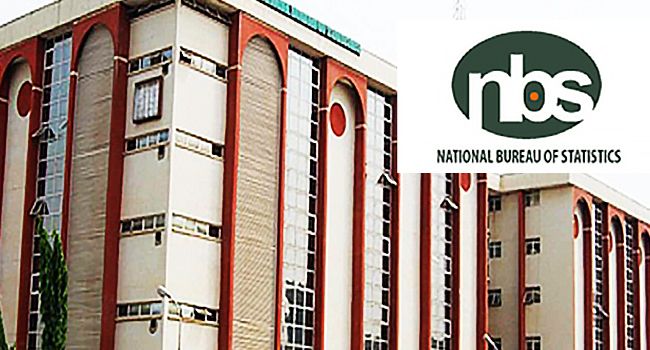Total Foreign Direct Investment (FDI) inflows into the country rose by 30.73 per cent, or $59.43 million, to $252.83 million between January and September last year compared with $193.40 million in the corresponding period of the preceding year, findings by New Telegraph show.
According to data released by the National Bureau of Statistics (NBS), FDI inflows into the country rose to $103.82 million in Q3’24 from $29.83 million and $119.18 million in Q2 and Q1’23 respectively. This means that total FDI inflow between January and September last year amounted to $252.83 million.
An analysis of the NBS data, however, indicates that although FDI inflow headed north for the most part of last year, its contribution to total foreign investment in the country is not as significant as, for example, the contribution from Foreign Port folio Investment (FPI).
For instance, commenting on the latest data released by the NBS, analysts at FBNQuest, stated: “Capital Importation report from the National Bureau of Statistics (NBS) reveals that capital inflows into Nigeria declined by -52 per cent quarter-on-quarter (QoQ) to approximately $1.3 bn in Q3 2024.
However, on a year-on-year (YoY) basis, the value was 91 per cent Y-o-Y higher “The sequential reduction in capital inflow was driven by double-digit decreases in inflows from Foreign Portfolio Investments (FPI) and other investments of the total capital inflow; portfolio investments comprised approximately 72 per cent, while other investments and Foreign Direct Investments (FDI) accounted for about 20 per cent and eight per cent, respectively.”
The analysts further said: “Despite its significant contribution to capital inflows, FPI inflow fell by -36 per cent QoQ to $899 m, driven by reductions across all segments, with inflows into equity, bonds, and money market investments declining by between -43 per cent and -61 per cent “Other investments, the next largest segment, declined by -79 per cent QoQ to $250 million.
The share of loans, which typically accounts for over 90 per cent of the category’s inflow, plummeted to $235 million from almost $1.2 billion in Q2’24.
“Conversely, foreign direct invest ment inflow increased to $104 million from $30 million in Q2’24. Despite the increase, FDI remains significantly low, highlighting ongoing challenges in attracting substantial foreign investment.”
Indeed, financial experts note that the foreign exchange crisis, which the country has grappled with in recent years, was responsible for FDI inflows into Nigeria falling by 21.21 per cent from $3.3 billion in 2019 to $2.6 billion in 2020 and from $698 million in 2021 to $468 million and $377.37 million in 2022 and 2023 respectively.
New Telegraph reports that multinationals, such as Procter & Gamble (P&G) and GlaxoSmithKline (GSK) announced, in 2023, that they were exiting Nigeria over issues that were not unconnected with the country’s forex crisis. However, in June 2023, the Central Bank of Nigeria (CBN) launched key forex reforms aimed at liberalising the forex market and attracting foreign investors.
The reforms appear to be yielding the desired results. In his address at the Chartered Institute of Bankers of Nigeria’s (CIBN) 59th Annual Bankers’ Dinner held on November 29, for instance, Governor of the CBN, Mr. Olayemi Cardoso, declared that the economy was already reaping the benefits of the reforms.
He noted that when he and his team assumed office in October 2023, the CBN faced a backlog of over $7 billion in unfulfilled commitments and a fragmented FX regime characterized by multiple forex rates, which had encouraged arbitrage opportunities. According to him, the situation not only hurt foreign investment, but led to the depletion of the country’s external reserves which fell to $33.22 billion in December 2023.
He pointed out that the forex reforms were critical to the survival of the economy as the subsidy that the country previously paid on forex was actually higher than the trillions of naira gulped by fuel subsidy. As he put it: “In 2022 alone, the potential revenue lost due to a less flexible FX regime was approximately N6.2 trillion, compared to N4.5 trillion from fuel subsidies.
These funds could have significantly contributed to critical investments in education, healthcare, and infrastructure development.” Apart from saving the country the substantial amount that used to be lost to forex subsidy, the CBN’s reforms, Cardoso said, not only reduced FX volatility but also boosted the country’s external reserves to over the $40 billion mark last year compared with $33.6 billion in October 2023.
He further stated that: “An enabling policy environment has led to a doubling of monthly remittances from an average of $300 million in 2023 to nearly $600 million in August 2024.” Interestingly, while reacting to the NBS data, analysts at FBNQuest said they expect ongoing investments in the oil and gas sector to contribute to FDI inflows in the coming quarters .















